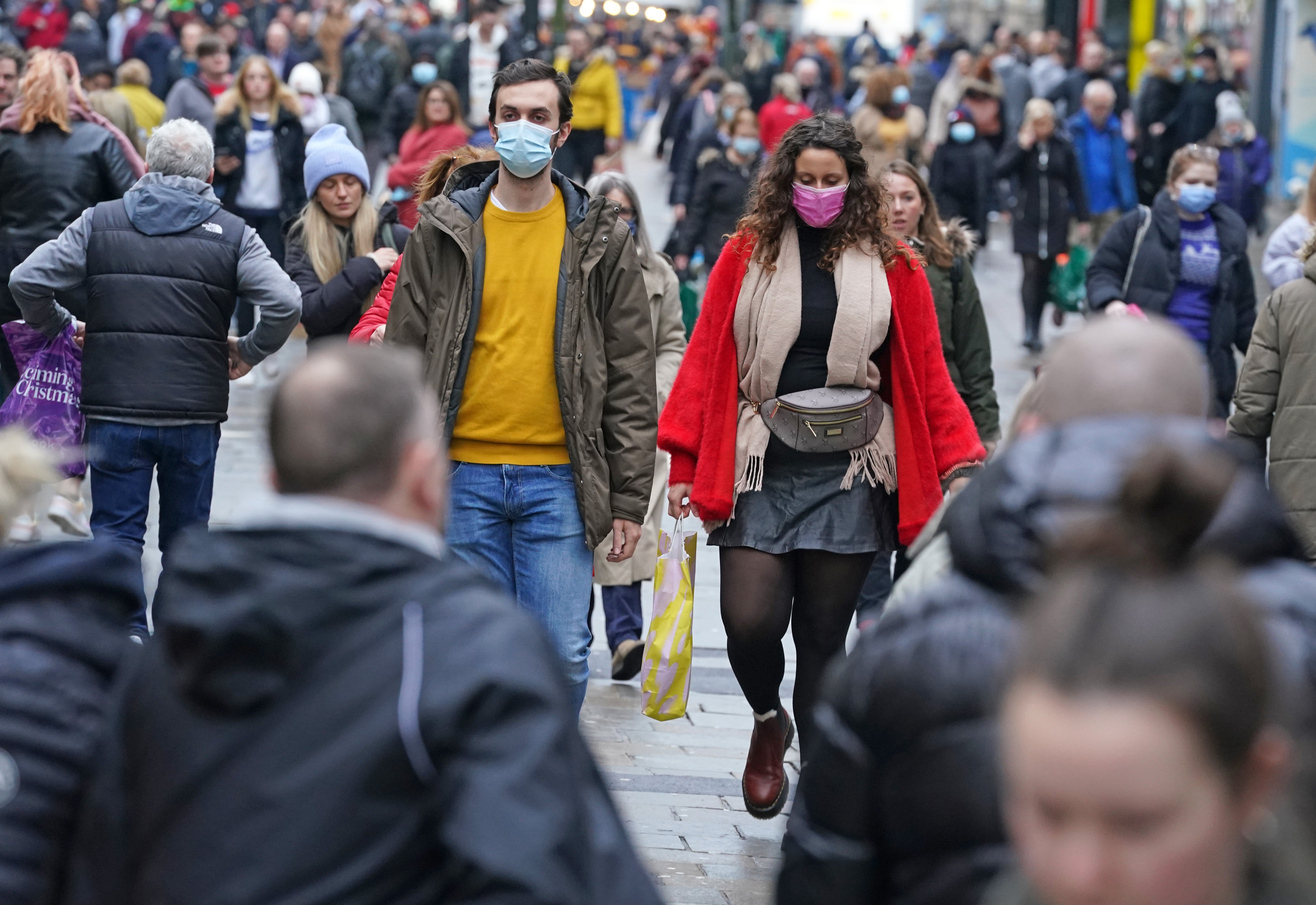How are Covid restrictions different across the UK moving into the new year?
The rules in England are different to those in Scotland, Wales and Northern Ireland.

Health Secretary Sajid Javid has said no further coronavirus restrictions will be introduced in England before the new year but “people should remain cautious”.
It means the rules in England are different to those in Scotland, Wales and Northern Ireland
Here, the PA news agency looks at how the measures compare in the different UK nations.
– What is happening in England?
On Monday, it was announced that no further coronavirus restrictions would be imposed in England until the new year, meaning the country has the most relaxed rules in the UK.
However, Covid passes for entry into nightclubs and other venues have been in place as of December 15.
This applies to indoor events with 500 or more attendees where people are likely to stand or move around, such as music venues, certain outdoor events, such as music festivals, and any events with 10,000 or more attendees.
Face coverings have also been made compulsory in most indoor public settings, as well as on public transport, and people have been told to work from home if they can.
If a person in England has tested positive or has symptoms, they can stop self-isolating after seven days instead of 10 days if they receive two negative lateral flow test results on days six and seven.
Those who are unvaccinated close contacts of positive cases must still isolate for 10 days.
England’s guidance is that people should work from home if they can. Anyone who cannot work from home should continue to go in to work – but is encouraged to consider taking lateral flow tests regularly.
– What are the rules in Wales?
Groups of no more than six people will be allowed to meet in pubs, cinemas and restaurants in Wales.
Licensed premises will have to offer table service only, face masks will have to be worn and contact tracing details collected and two-metre social distancing rules are in place.
Sporting events will be played behind closed doors to help control the spread of the new Omicron variant.
Nightclubs have also been closed from Boxing Day under the new rules.
Regulations will also be changed to include a requirement to work from home wherever possible.
A maximum of 30 people can attend indoor events and a maximum of 50 people at outdoor events.
People attending weddings or civil partnership receptions or wakes are also being told to take a lateral flow test before attending.
– What’s the situation in Scotland?
Events will have one-metre social distancing and will be limited to 100 people standing indoors, 200 people sitting indoors and 500 people outdoors.
One-metre physical distancing is in place in all indoor hospitality and leisure settings.
Table service is also required where alcohol is being served.
Since December 14, people have been asked to reduce their social contact as much as possible by meeting in groups of no more than three households.
Allowing staff to work from home where possible has become a legal duty on employers.
Care home visits have also been limited to two households.
– What is Northern Ireland doing?
Nightclubs will be closed on New Year’s Eve.
Dancing will also be prohibited in hospitality venues, but this will not apply to weddings.
People must remain seated for table service, while table numbers will be limited to six.
Ministers also agreed that sporting events can continue with no limits on capacity, while the work-from-home message is being bolstered and legislation introduced to require social distancing in offices and similar type workplaces.
Weddings are exempted from the latest measures.
From December 27, the guidance is for mixing in a domestic setting to be limited to three households.
Bookmark popover
Removed from bookmarks